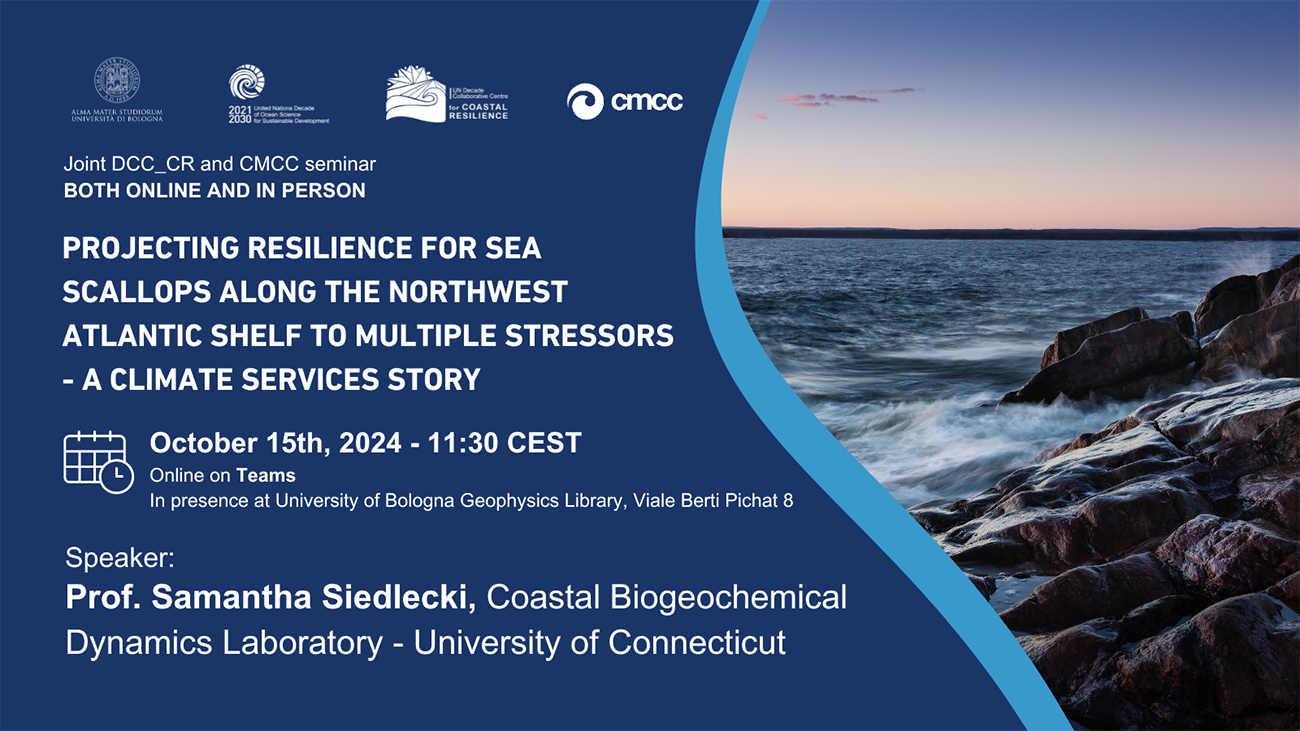DCC-CR and CMCC seminar
15 October 2024 , h. 11:30 to 12:30
Online on Teams – In presence at University of Bologna Geophysics Library, Viale Berti Pichat 8

Speaker
Professor Samantha Siedlecki
Abstract
The Atlantic Sea scallop fishery is worth more than $500 million per year, is the second highest fisheries revenue in the United States, and the largest wild scallop fishery in the world. Scallop habitat is changing as New England waters warm, freshen, and becomes lower in oxygen and pH. As a result, sea scallop biomass has been predicted to decline by more than 50% by the end of the century, due to ocean acidification, but other stressors like warming also impact their vulnerability through altered growth, reproduction, and shell calcifying ability. A decline in biomass could lead to ecosystem-wide changes in the abundance and distribution of sea scallops across the Northeast U.S. Shelf, and negative impacts on many coastal communities reliant on sea scallops for their culture, livelihoods, and well-being. The vulnerability and resilience of fishing communities to the effects of warming and ocean acidification (OA) on Northeast species is dependent on their adaptive capacity in relation to both social and environmental exposure and sensitivity factors. The regional contribution of calcifies like sea scallop to total regional landed value has steadily increased over recent decades as has the fishing community dependence on it as a source of revenue. Recent outcomes of workshops led by the Northeast Coastal Acidification Network (NECAN) include an agreement by industry representatives that there is a need for advance warning for any changes which might impact their business. Here, we provide a spatially- explicit regional projection of changes within the sea scallop fishing zones which can inform fishery management and allow communities that rely on Atlantic Sea scallops to plan and explore scenarios that would enable them to become more resilient to future change that considers both OA and warming. In particular, the role of closures and management area changes informed by the projected conditions is explored alongside the management and industrial community within the context of past adaptation strategies made by the industry. The results have been presented in a series of workshops designed with a focus group approach that includes members of the scallop fishery, aquaculture, and coastal communities that depend on this marine resource, and the summary of those workshops will also be presented.
HOW TO PARTICIPATE
15 October 2024 , h. 11:30 to 12:30
Online on Teams – In presence at University of Bologna Geophysics Library, Viale Berti Pichat 8
ORGANIZED BY:
DCC-CR, CMCC

